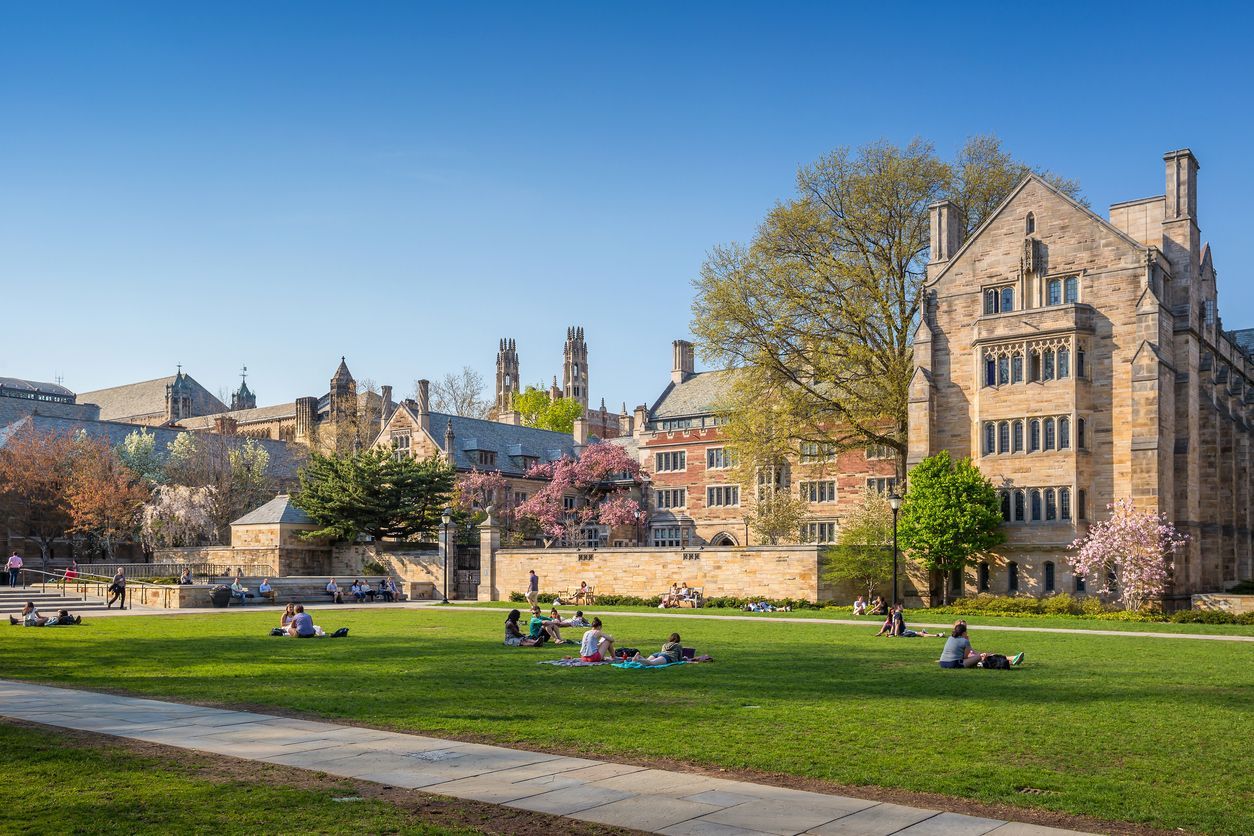This page is licensed under Creative Commons under Attribution 4.0 International. Anyone can share content from this page, with attribution and link to College MatchPoint requested.
Top 5 Reasons 86% of Students Are Just as Happy Outside the Ivies and Near-Ivies
The myth that ultra-competitive admission is the key to happiness and success does not match reality. Eighty-six percent of students report satisfaction across all types of schools, and many of the most meaningful opportunities come at universities parents already know and trust.
The real dream school is not the one with the lowest acceptance rate. It is the one where your student feels seen, supported, and prepared for what comes next.

For many families, the idea of a “dream school” still centers on the Ivy League or the handful of near-Ivies with single-digit acceptance rates. Yet the data tells a different story. Student happiness and success are not reserved for the most ultra-competitive colleges. In fact, 86 percent of students report being satisfied with their college experience, whether they attend an Ivy, a flagship public, or a well-known private university.
Here are five reasons students are just as happy, and often more engaged, outside the ultra-competitive tier.
1. Strong Faculty Engagement at Selective Schools
At ultra-competitive campuses, professors often prioritize research and graduate students. By contrast, schools with 20 to 40 percent admit rates report stronger student-faculty interaction. Students at these colleges are more likely to form meaningful mentoring relationships that open doors to research, internships, and graduate school support.
Schools such as Texas A&M University, University of Colorado Boulder, and the University of Georgia are known for strong faculty-student connections in honors programs and beyond.
Case Study: Sarah’s Experience
Sarah enrolled at Texas A&M after being waitlisted at her Ivy dream. By spring of her first year, she was assisting a professor with a project on renewable energy. Her friends at ultra-competitive campuses were still trying to get into required classes. Sarah credits that early mentorship with helping her secure a competitive research grant.
2. Greater Access to Research and Opportunities
On ultra-competitive campuses, students compete intensely for limited research spots, leadership positions, and club memberships. At strong flagships and selective private universities, access is often wider and deeper.
Students at schools like Southern Methodist University, Tulane University, and the University of Denver often report being able to participate in research and leadership roles early in their college careers.
Case Study: Maya’s Experience
Maya turned down an Ivy waitlist spot to join Southern Methodist University’s honors program. By sophomore year, she had studied abroad, completed a funded research project, and served as a teaching assistant. Her friends at ultra-competitive campuses described long waitlists just to access similar opportunities.
3. Competitive Outcomes Without the Price Tag
Families know the price tag matters. Private colleges average $42,000 to $65,000 per year, yet many offer merit aid that discounts tuition by more than half. Flagships like The University of Texas at Austin, the University of Michigan, and the University of North Carolina at Chapel Hill consistently produce outcomes that rival ultra-competitive peers while giving families stronger value.
Private schools such as Texas Christian University, Vanderbilt University, and Rice University also combine strong alumni networks with scholarships and honors tracks that make them financially competitive.
Case Study: Daniel’s Experience
Daniel was admitted to an ultra-competitive private school at full cost, as well as Vanderbilt University with a generous merit scholarship. His family chose Vanderbilt. The scholarship, combined with a strong alumni network and internships in Nashville, allowed him to graduate debt-free while landing a starting salary on par with peers from the Ivies.
4. A Healthier Campus Culture
Ultra-competitive schools often cultivate a sense of constant competition. Students feel pressure to outperform each other rather than build community. By contrast, at schools like University of Tennessee, Auburn University, and Colorado State University, students often describe a collaborative culture, strong community bonds, and more balance between academics and campus life.
That difference matters. The national 86 percent satisfaction rate holds across ultra-competitive and selective colleges, but the reasons for satisfaction shift. Students at less hyper-competitive campuses often point to community, mentorship, and approachable faculty.
Case Study: Olivia’s Experience
Olivia turned down an Ivy acceptance to attend Tulane University on a full-tuition scholarship. She quickly found a supportive community, leadership roles in student government, and a close mentorship with a faculty member who encouraged her to apply to medical school. She is now thriving in her pre-med track without the sense of burnout many of her Ivy peers describe.
5. Broader Definitions of Success
Success is not one-size-fits-all. For some students, it is graduating without overwhelming debt. For others, it is being one of the top students in their program and receiving faculty attention that leads to graduate school or career opportunities.
At schools like University of Washington, University of Arkansas, Trinity University in San Antonio, and University of Southern California, students often find that being a “big fish in a medium pond” sets them up for long-term success. They graduate with strong faculty recommendations, career pathways, and flexibility to pursue graduate school or move to a new city.
Case Study: Ethan’s Experience
Ethan dreamed only of Ivy campuses. When that did not work out, he chose Rice University, where he rose quickly in his program. The close support of his professors guided him through law school applications, and he is now enrolled in a top 10 program. Looking back, Ethan says he is grateful to have been in an environment where faculty invested deeply in his success.


